Expanding Literacy Development
Posted in: NewsEducational Leadership Conference in São Paulo
The five professionals, seated in large wooden chairs, passed two microphones between them, each leaning in as their colleagues spoke. This moving panel included laughter, affirmation, and even a few tears. The topic was expanding literacy development in elementary, middle, and high schools across Brazil.
Catia Costa, who coordinates secondary programs at Harmonia–a bilingual school in Campo Grande–spoke about the importance of seeing each other. She talked about how her leadership team has worked with students to better greet one another and the school support staff in the morning. Seeing each other is a kind of literacy.
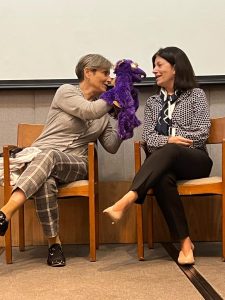
Rossella Beer, who coordinates elementary, middle, and high school programs at Colegio Dante in São Paulo, talked about the importance of play. She even took out her famous puppets to speak to the audience and to Jane Webster, secondary coordinator at Jean Piaget in Santos, about the serious learning that can happen when students are having a really good time.
Midiam Golino coordinates the secondary programs at Cristo Rei in Marília. She talked about the importance of service and the learning that happens in the context of our communities.
As the panel was closing, Kathryn Fishman-Weaver, Executive Director for Mizzou Academy, pointed out that the group had spent over an hour talking about literacy development, and not once had anyone mentioned phonics, grammar, or standardized assessments. It isn’t that these things aren’t important, she went on to say, but perhaps they “aren’t as important as connection, leadership, and the critical literacy of noticing. Being aware, mindful, and responsive is literacy work, too, and these are skills we want to cultivate in our school communities.”
The 2023 Mizzou Academy Educational Leadership conference challenged educators to consider new and broader ways to think about literacy development.
New Ways to Think about Literacy Development
The Mizzou Academy team was thrilled to host this educational conference for coordinators of our partner schools in Brazil. During the conference (August 29-30) participants learned more about the three main programs we offer in Brazil: Dual Diploma (High School), Mizzou Global Scholars (Middle School), and Mizzou Elementary (Elementary School).
Recognizing that literacy development is the cornerstone of these programs, the conference goal was to expand the ways we all think about literacy development in the K-12 classroom. Sessions were organized around four key literacy topics: Public Literacy, Emotional Literacy, Multilingualism: Reading and Writing Across the Content Areas, and 21st-Century Literacy Skills.
The two days were packed with opportunities for professional learning, community building, and programmatic announcements. Participants included school administrators, coordinators, assistant coordinators, and teachers.
The conference began with a Public Literacy Showcase, followed by sessions on “Multilingualism and Emotional Literacy” and a programmatic overview on “Literacy Development and the Dual Diploma Program.” The second day began with the literacy panel referenced in the opening story and was followed by a session on “Communication Best Practices for Coordinators” and programmatic overviews of our K-8 programs, Mizzou Global Scholars, and Mizzou Elementary.
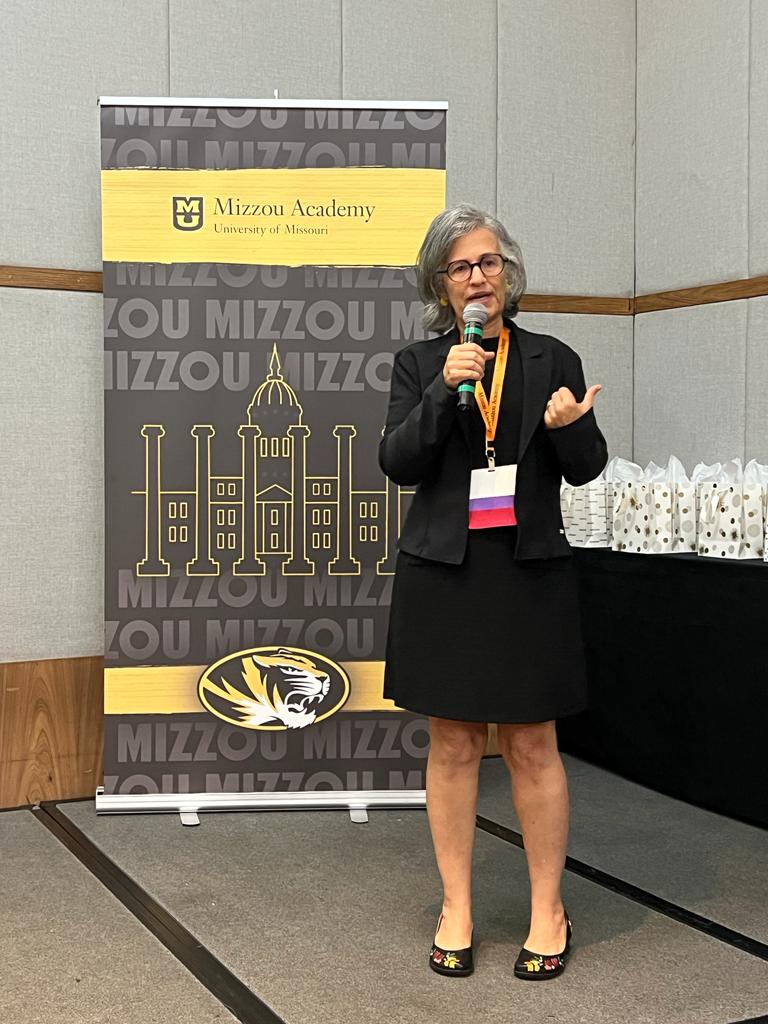
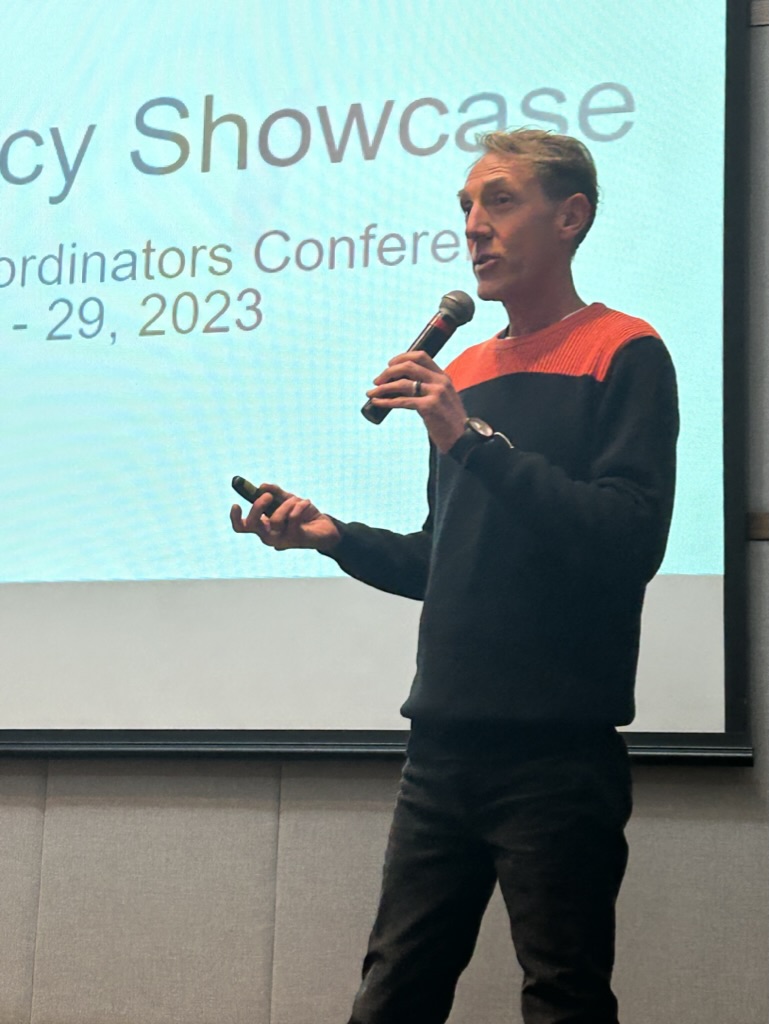
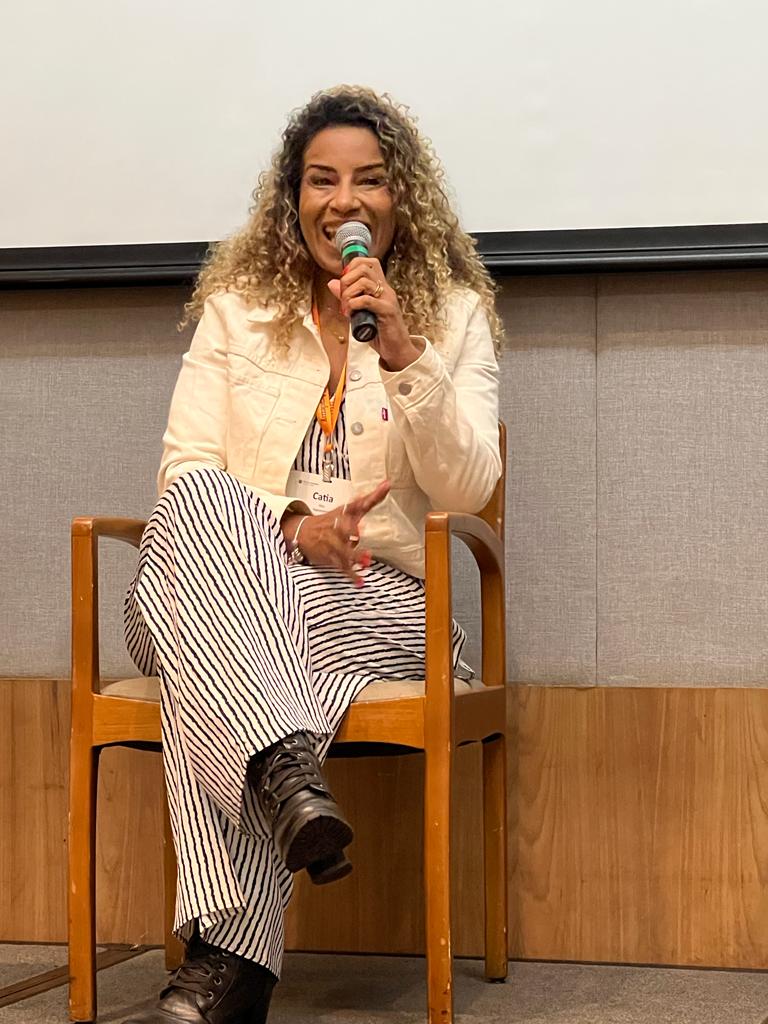
Ana d’Almeida, Bert Garner, and Catia Costa share insights on ways they are expanding literacy development within their school communities.
Stephanie Walter, our Director of Teaching and Learning, led a session on navigating Artificial Intelligence (AI) in the classroom. She shares that “supporting academic integrity is a hard topic, especially as AI is storming the scene! I love that our focus is on what to encourage in students. It’s not about catching someone plagiarizing. Instead, it’s all about inviting each student’s real voice into the work and helping them build their communication skills. I appreciate the hard and meaningful work our partners do to know each student and teach them to use their own, impactful voice. And I love that our focus on each student is holistic and focused on lifelong habits and skills.”
Our Middle School Coordinator, Brian Stuhlman, led an interactive workshop on what literacy development looks like in our Mizzou Global Scholars curriculum. He suggested that teachers have many different responsibilities and opportunities to foster growth and connection in this program. His session was anchored in a Stuhlman-original acronym: T-E-A-C-H-E-R-S.
T – Take healthy risks. (push the comfort zone)
E – Experiment. (put teachers and students into roles where they can try things out)
A – Ask good/better/more questions. (practice intentional curiosity)
C – Create context. (infuse lessons with student, community, and Mizzou values)
H – Hone skills. (21st century skills require practice)
E – Engage. (with self, others, environment; collaborate)
R – Reach out. (to community, with a heart for service)
S – Showcase and “Sell”-a-brate. (put successes on display for students, families, schoolmates, community, and beyond)
Like Teaching, Literacy is a Community Project
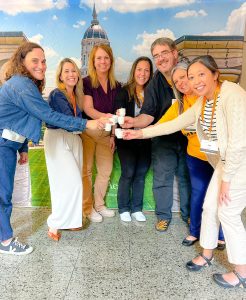
One of the greatest benefits of our Mizzou Academy conferences is the opportunity to learn and engage together. As a global professional learning community, Stephanie Walter shares that “each conference brings tangible excitement and warmth. We’ve worked together for so long that we not only are partner teachers, but friends. We love working together and are so fortunate to dream and problem-solve together. Each time I travel to see teachers and students doing their thing, I just feel so lucky. We are doing amazing work together, and I’ve grown as an educator from learning with them how to meet student needs through our co-teach approach. I have tremendous respect for this group.”
In planning and directing these conferences, Kathryn Fishman-Weaver commits to centering student and teacher voices. Therefore, it’s no surprise that when asked about her favorite conference moments, she listed the young people and educators she got to learn with. “Some of my conference highlights include learning with Federica Azcona, a student leader at Colegio Magno; facilitating a panel with expert coordinators including Catia Costa, Midiam Golino, Rossella Beer, and Jane Webster; exploring emotional literacy and neuroscience with educational leaders; reconnecting with Maria Lucia, a University of Missouri High School graduate who is now teaching in one of our schools; and, of course, all the Mizzou spirit, right down to participants’ socks and Brian’s shoes.”
Literacy is Leadership
One of the conference themes centered on public literacy. In the conference booklet, Fishman-Weaver defined public literacy as “an umbrella term for texts and language that influence or are published in the public sphere. This can include journalism (written or broadcast); social media and strategic communications; campaigning for issues; oratorical presentations, including speeches, podcasts, lectures, and spoken word events; and art installations, including murals and street art. The focus of public literacy work is to be heard; to persuade or inform; and, ultimately, to impact change.”
Federica Azcona, a student leader at Colegio Magno, opened the conference with a moving example of how young people can use their voices and talents to impact change. As a high school student, Azcona set up a club with weekly meetings focused on helping others. This extracurricular activity led her and her peers to launch several initiatives to support vulnerable communities and to celebrate our shared humanity. Azcona says the club focuses on three core ways of being: heartwarming, innovative, and caring. Their work has included outreach to strangers, setting up programs for under-resourced women, and connecting with young children.
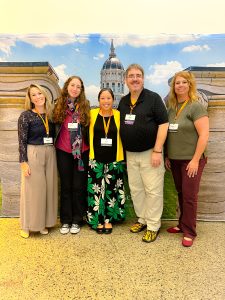
Azcona was one of the first presenters at the conference, and her session set a powerful tone that guided our learning. As Fishman-Weaver shares, “The conference was a wonderful opportunity to strengthen our professional learning community and expand our collective understanding of literacy development. As always, students are some of our most important teachers.”
Mizzou Academy is gearing up for their winter Teaching and Learning Conference in December. This year the conference will be virtual, giving even more opportunities for broader connections across our global school community.